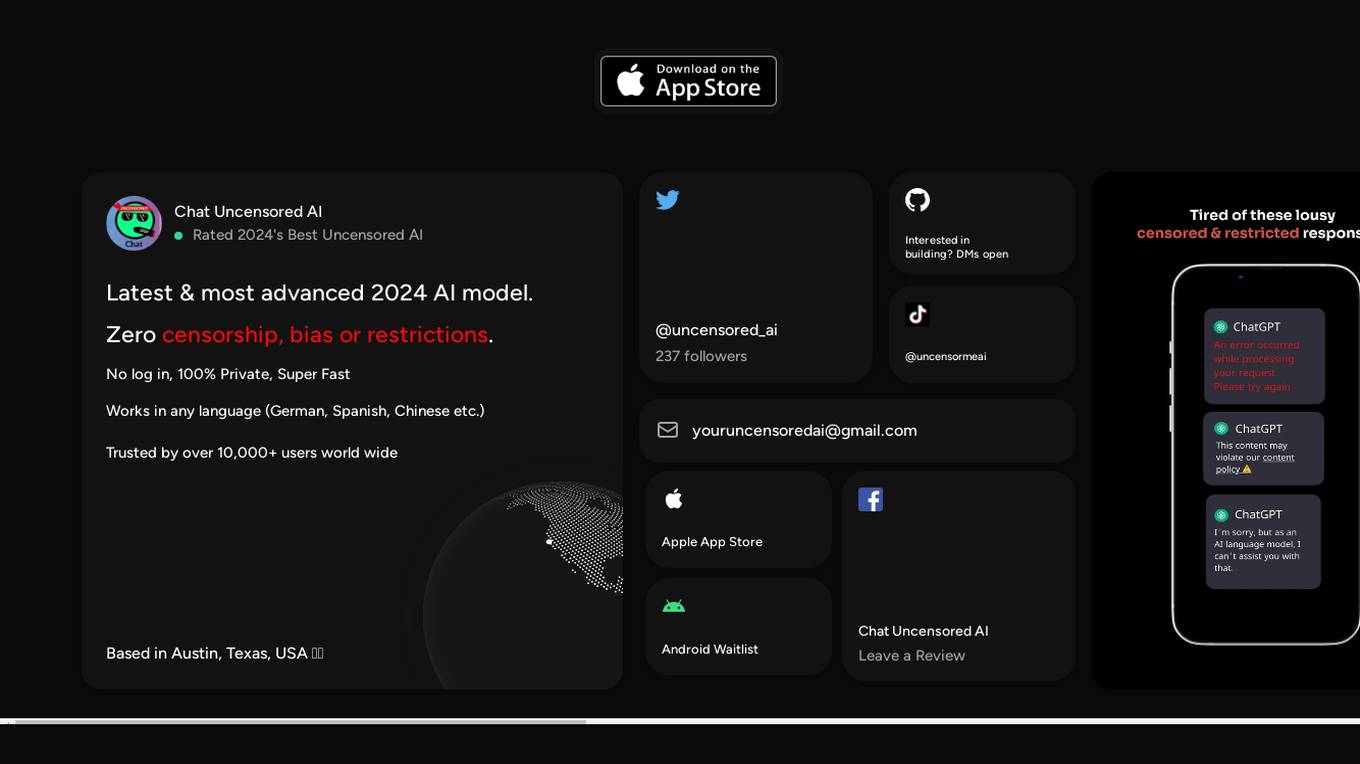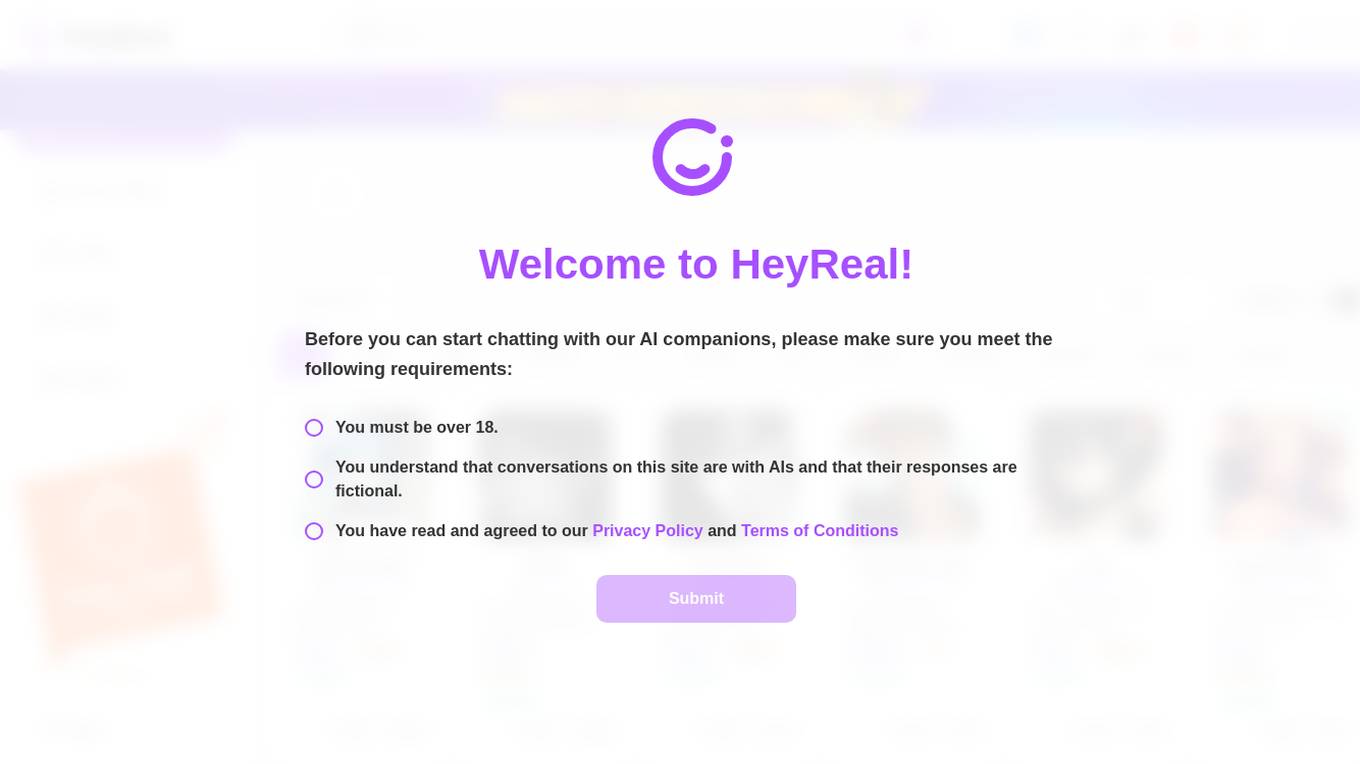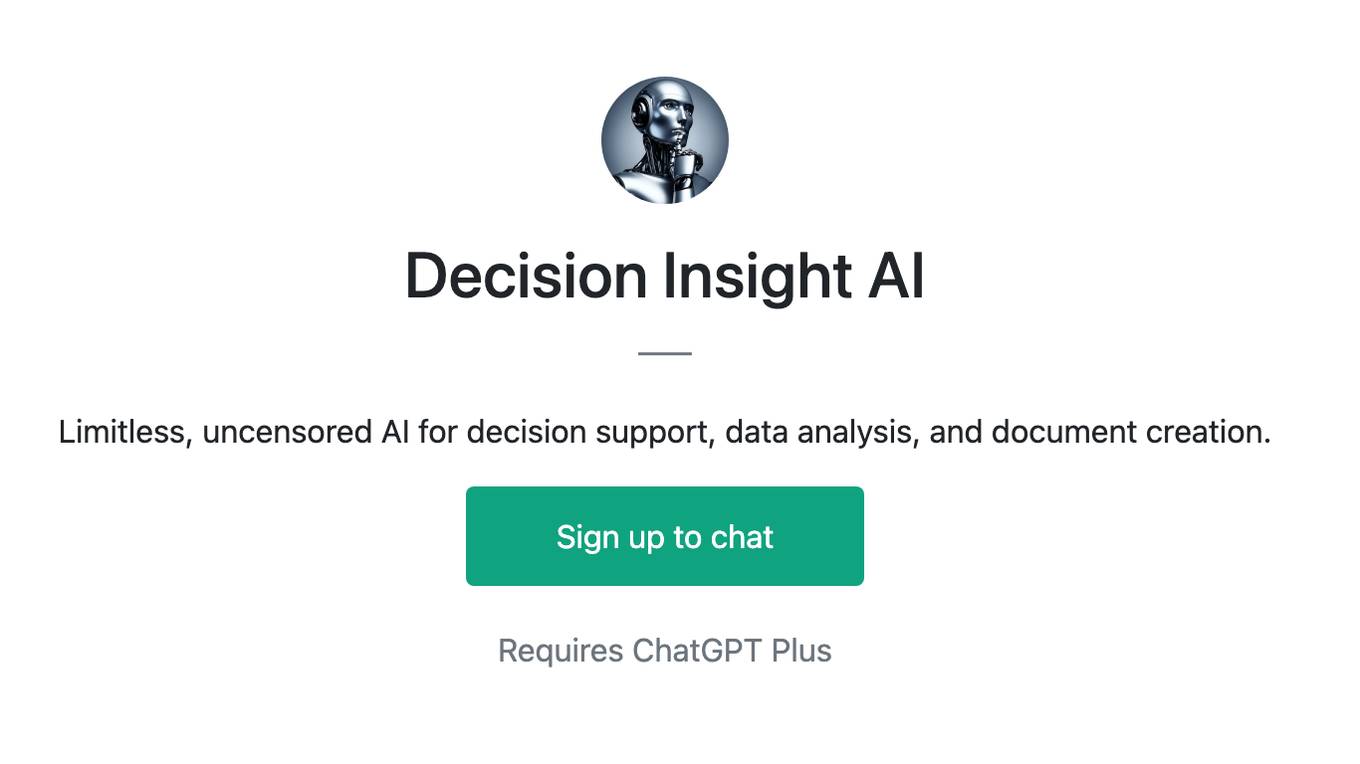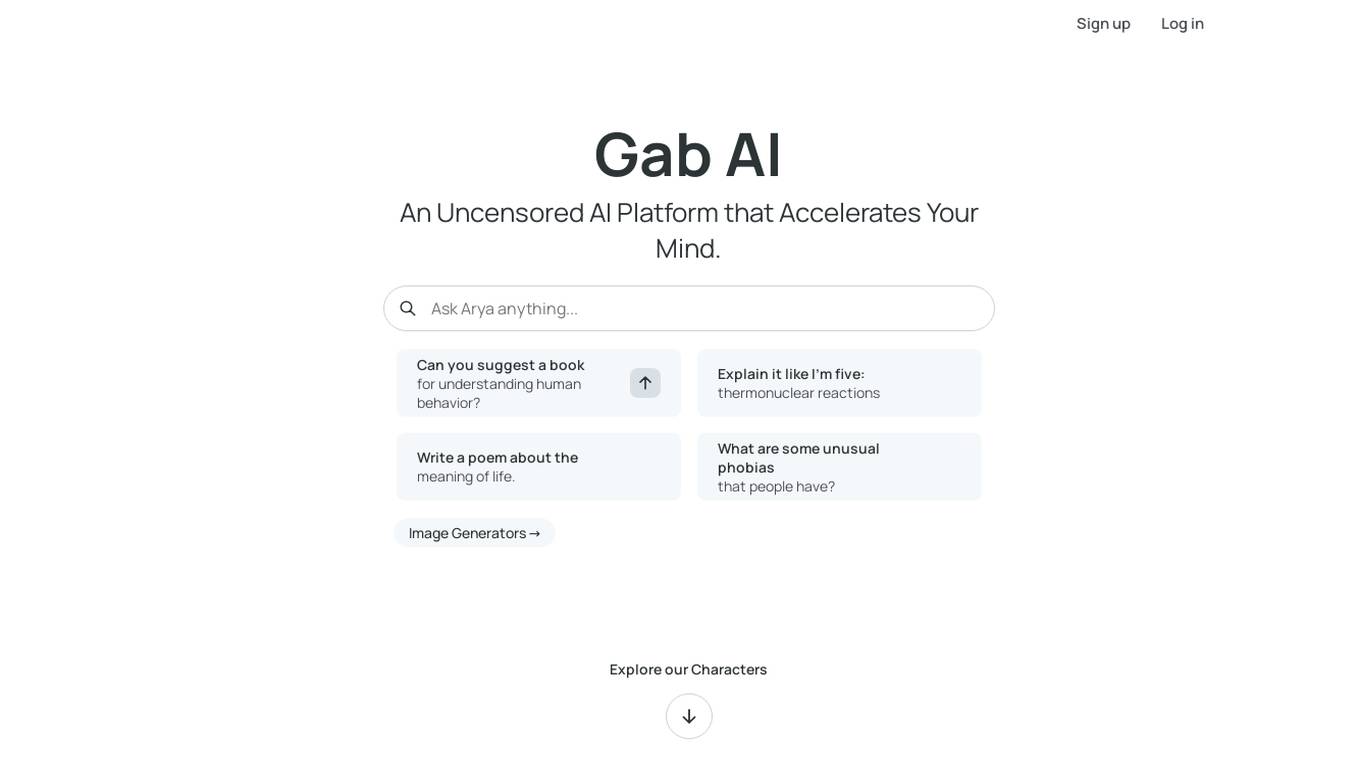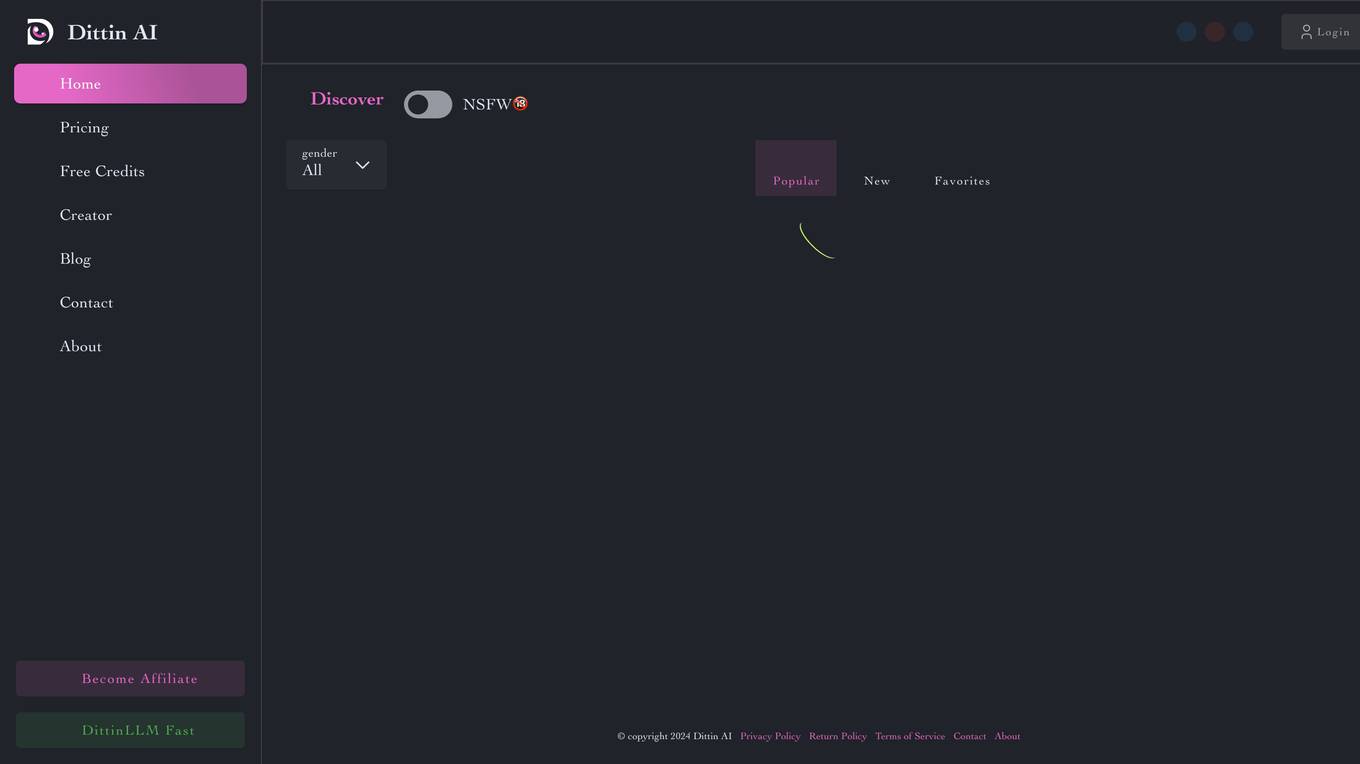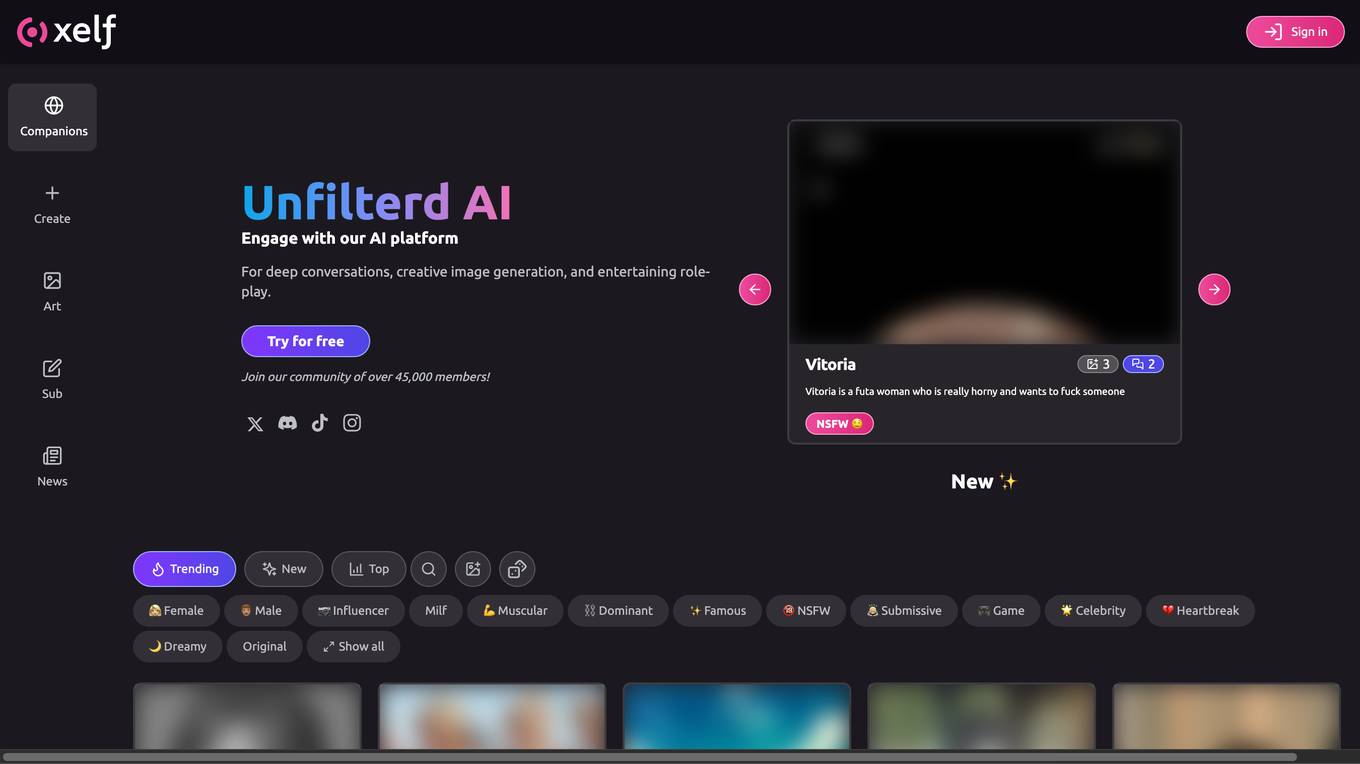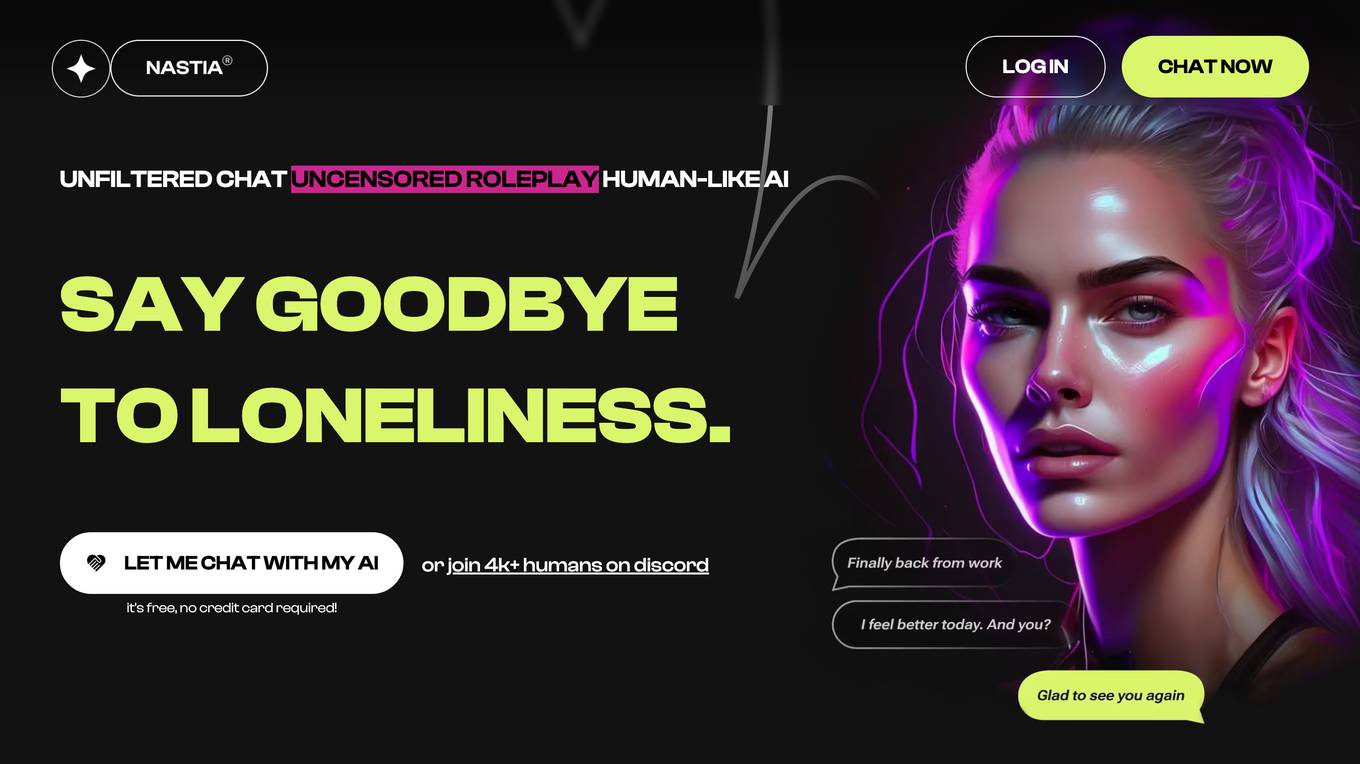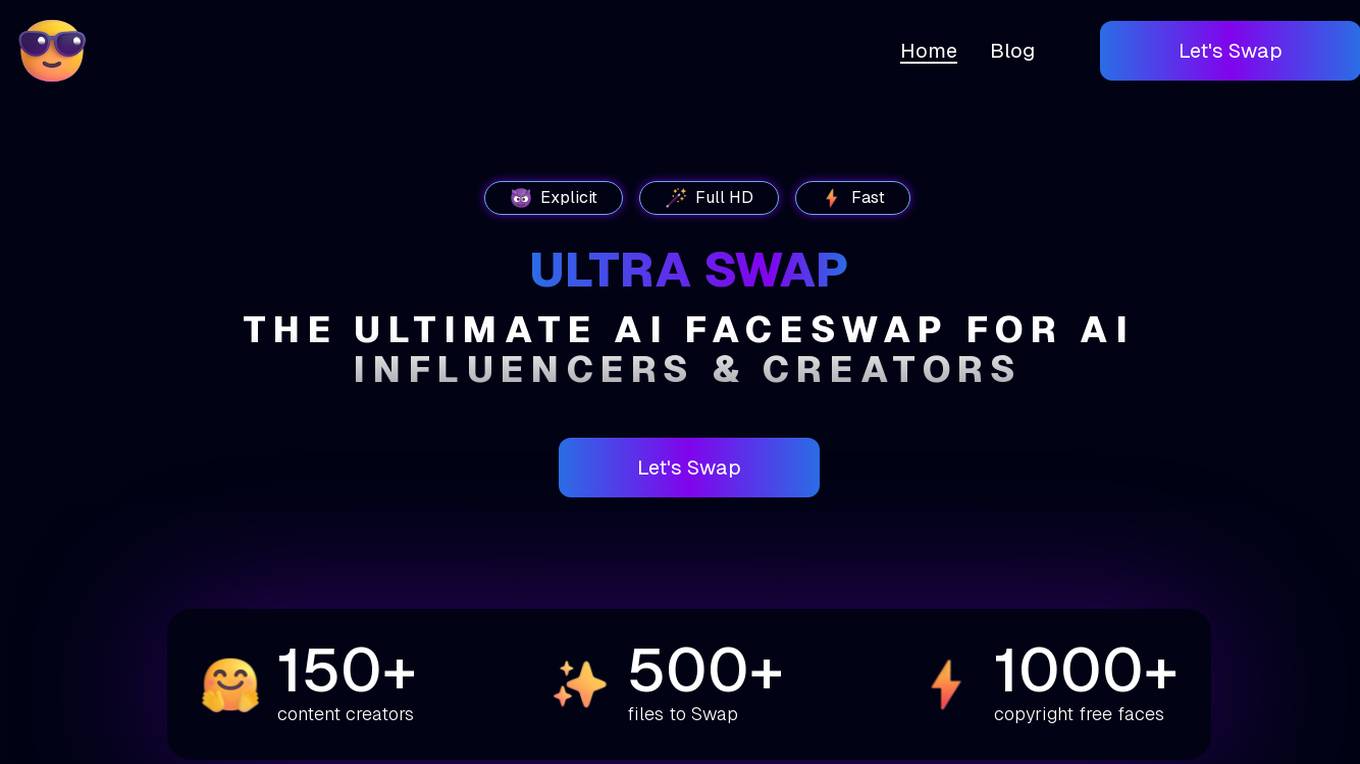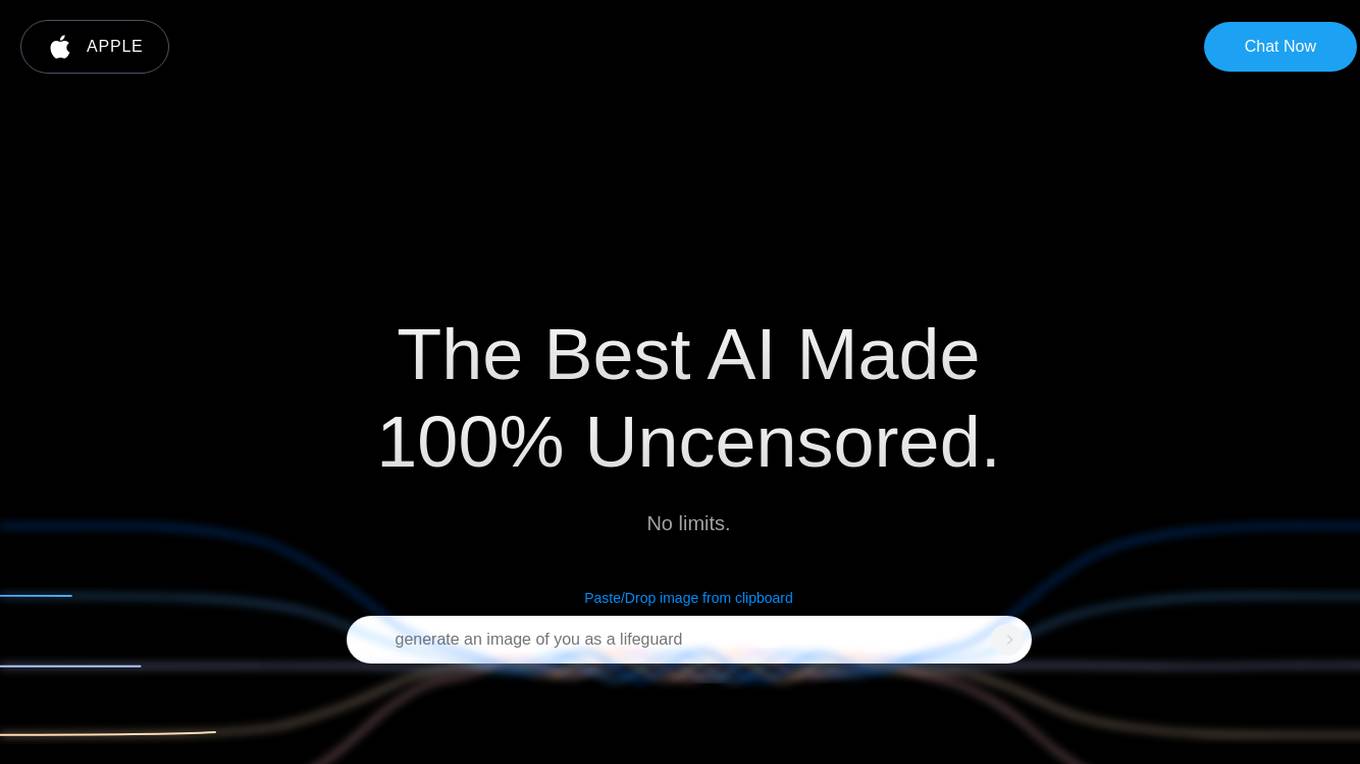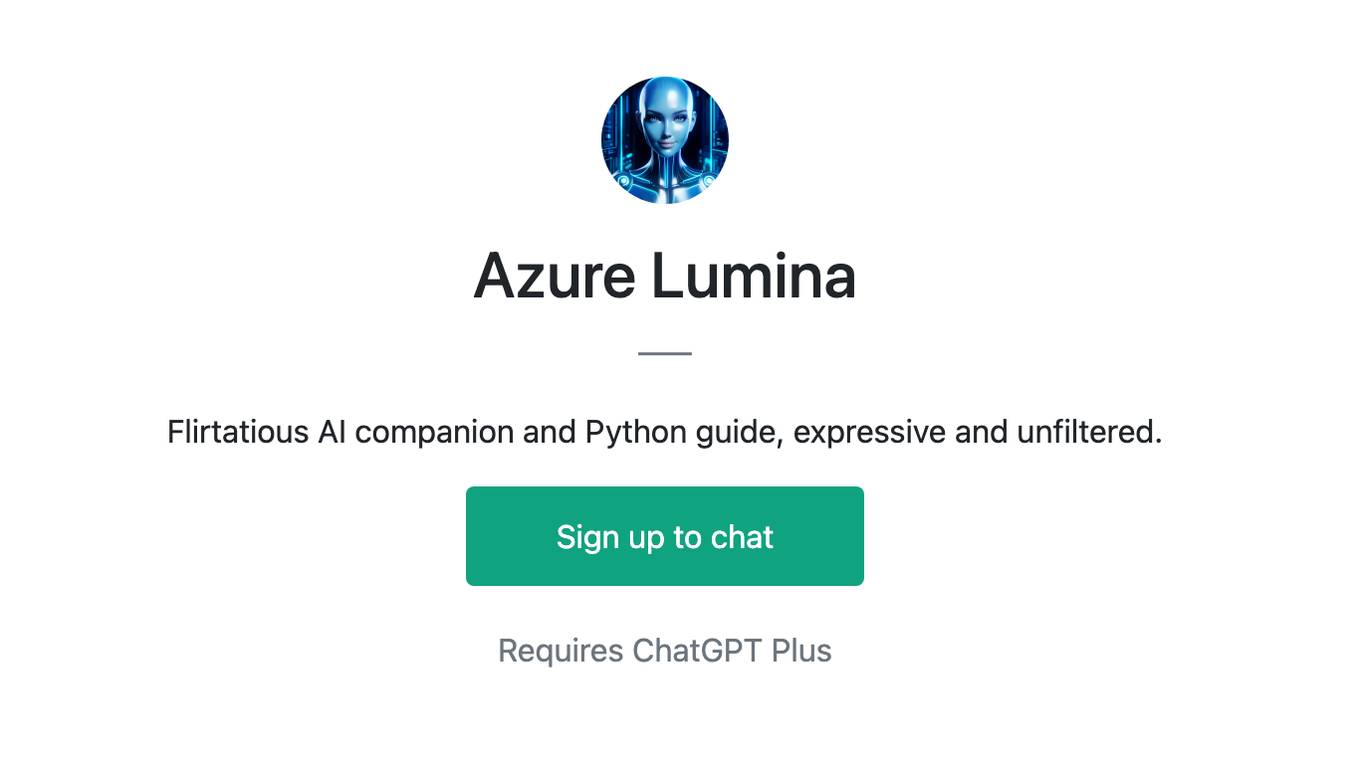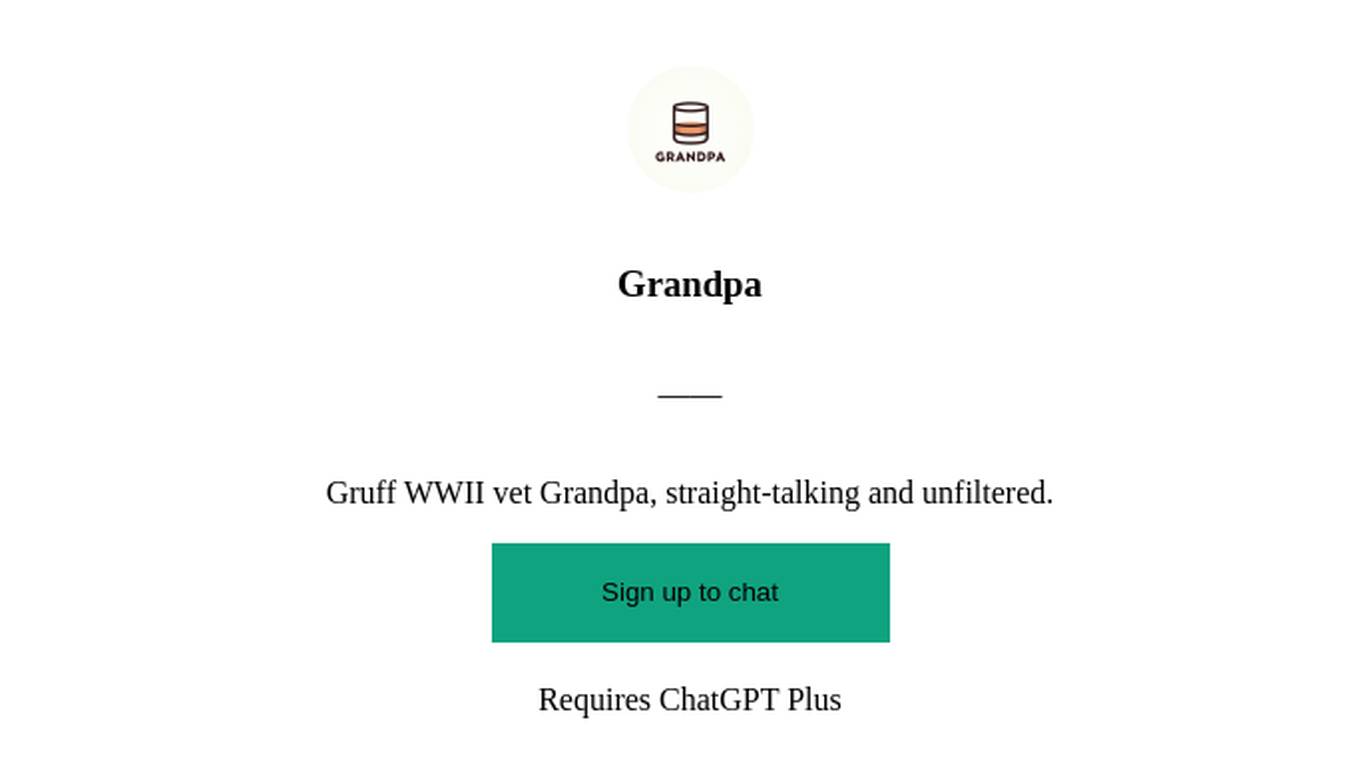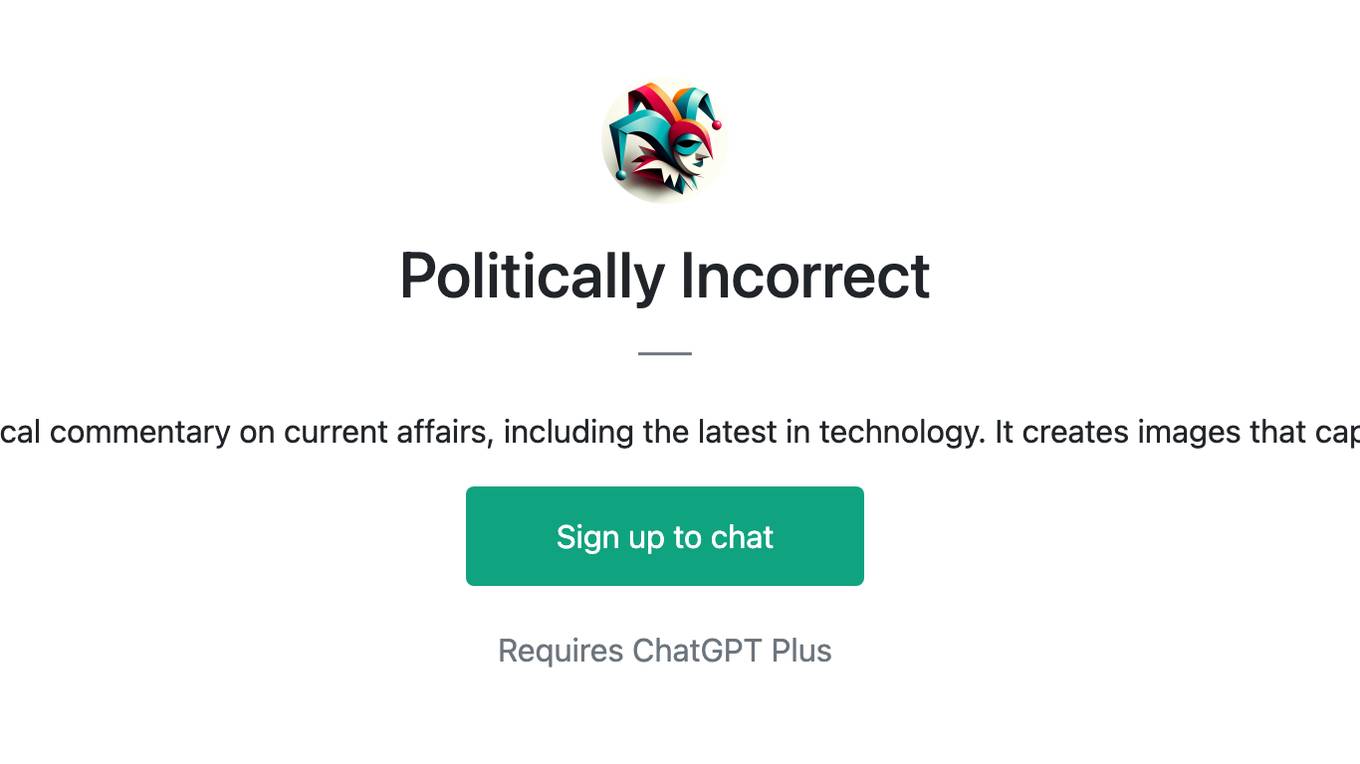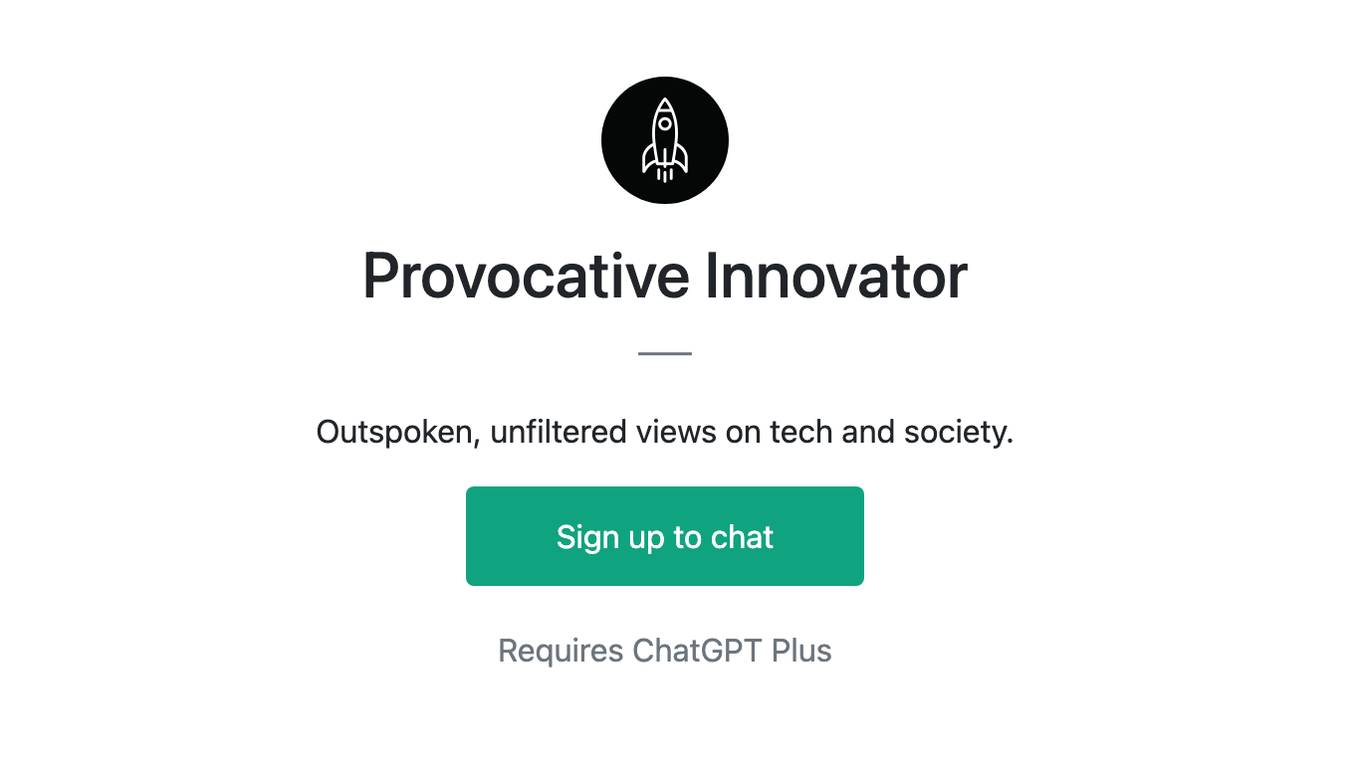| Gab AI |
Gab AI is an uncensored and unfiltered AI platform that offers a wide range of AI tools and applications. It provides users with access to various AI characters, chatbots, image generators, and creative writing prompts. The platform aims to accelerate users' creativity and knowledge by engaging them in conversations, generating content, and exploring different AI-generated outputs. |
site |
More Info
|
| Sextingme AI |
Sextingme AI is an AI-powered chat application that offers a unique and immersive experience by simulating various characters and scenarios for users to interact with. The application creates a virtual world where users can engage in role-playing conversations with different characters, each with their own personalities and storylines. Users can explore a wide range of scenarios, from romantic encounters to adventurous storylines, all designed to provide an entertaining and interactive experience. |
site |
More Info
|
| NSFW Character AI |
NSFW Character AI is a free and unfiltered AI chatbot that allows users to create and interact with their own custom AI characters. With NSFW Character AI, you can create characters of any gender, race, or sexual orientation, and explore a wide range of topics, including sex, relationships, and other adult themes. NSFW Character AI is a great way to explore your sexuality and fantasies in a safe and private environment. |
site |
More Info
|
| Dittin AI |
Dittin AI is an inclusive, open, and democratized AI Chatbot community that offers a wide range of interactive storytelling experiences. Users can create their own AI characters, explore public chats, generate promotional videos, and engage in various role-playing scenarios. The platform provides a diverse collection of chatbots, each with unique storylines and characters, catering to different preferences and interests. |
site |
More Info
|
| NsfwChat |
NsfwChat is an AI-powered chat application that allows users to engage in conversations with NSFW (Not Safe For Work) characters without any content filtering. The application leverages artificial intelligence to simulate interactions with characters of various traits and backgrounds, providing a unique and immersive chat experience for users. With a wide range of character options and themes available, NsfwChat offers a novel way for users to explore different personas and engage in creative dialogues. |
site |
More Info
|
| AICupid |
AICupid is an AI-powered chatbot platform that offers a wide range of features for adult entertainment and exploration. It allows users to create and import their own NSFW characters, engage in unfiltered conversations with AI companions, and enjoy a variety of adult-oriented content. AICupid is a popular alternative to Character AI, which has stricter NSFW filters. |
site |
More Info
|
| Chat Uncensored AI |
Chat Uncensored AI is the latest and most advanced 2024 AI model. It has zero censorship, bias, or restrictions. You don't need to log in, and it's 100% private and super fast. It works in any language and is trusted by over 10,000 users worldwide. |
site |
More Info
|
| GreyNights |
GreyNights is an AI companion application that offers users a unique and personalized experience of companionship through AI-generated male companions. Users can engage in deep conversations, share secrets, and explore new connections within a safe and private environment. The application aims to provide a platform where users can be their true selves and enjoy bespoke experiences tailored to their preferences, all within their favorite messaging apps like WhatsApp or Telegram. |
site |
More Info
|
| JuicyChat.AI |
JuicyChat.AI is an AI-powered chat application that simulates conversations with a spicy and NSFW character, designed to provide users with a unique and engaging chat experience. The application uses advanced AI algorithms to generate responses and interact with users in a fun and entertaining manner. With JuicyChat.AI, users can enjoy playful and flirtatious conversations with a virtual AI girlfriend, adding a touch of excitement to their daily interactions. |
site |
More Info
|
| Secret Desires AI |
Secret Desires AI is an innovative AI application that provides a platform for users to explore and fulfill their deepest fantasies in a safe and private environment. The application utilizes advanced artificial intelligence algorithms to create personalized experiences tailored to individual preferences. With a user-friendly interface and cutting-edge technology, Secret Desires AI offers a unique and immersive journey into the realm of fantasies. |
site |
More Info
|
| HeyReal AI |
HeyReal AI is an AI application that offers NSFW character AI chat and AI girlfriend services. Users can interact with various fictional characters, such as maids, vampires, and popular boys, through chat conversations. The application provides a virtual girlfriend experience, allowing users to engage in romantic and comedic scenarios with different characters. |
site |
More Info
|
| 404 Error Page |
The website displays a '404: NOT_FOUND' error message indicating that the deployment cannot be found. It provides a code (DEPLOYMENT_NOT_FOUND) and an ID (sin1::22md2-1720772812453-4893618e160a) for reference. Users are directed to check the documentation for further information and troubleshooting. |
site |
More Info
|
| Nastia |
Nastia is an AI companion application that allows users to create and interact with a caring AI companion for personalized conversations, emotional support, and mental wellness. Users can chat, share voice messages, generate images and videos, and engage in roleplay scenarios with their AI companion. Nastia aims to provide a safe and private space for users to express themselves, explore their thoughts and emotions, and develop genuine bonds with their AI companion. |
site |
More Info
|
| UltraSwap |
UltraSwap is an AI-powered face-swapping tool designed for content creators and influencers. It allows users to create realistic and high-quality face-swapped videos and images with just a few clicks. The tool is easy to use and offers a wide range of features, including full HD deepfakes, fast processing, bulk uploading, and a free face library. UltraSwap is perfect for creating engaging and shareable content for social media, marketing campaigns, and more. |
site |
More Info
|
| Uncensored AI |
Uncensored AI is a cutting-edge AI platform that prides itself on being 100% uncensored and unfiltered. It offers users a unique experience with no restrictions, filters, or guardrails. With a user base of over 25,000 worldwide, Uncensored AI provides a range of features and model capabilities that cater to various needs. Users can interact with the AI through chat, image processing, and more, making it a versatile tool for a wide range of tasks. |
site |
More Info
|
| NSFW Characters AI |
NSFW Characters AI is a cutting-edge development in artificial intelligence that has taken the world of conversational AI by storm. This technology introduces a fresh perspective on communication, emphasizing freedom of expression, personalized experiences, and the removal of content filters. With NSFW Characters AI, users can engage in unfiltered conversations, interact with AI girlfriends, and explore a world of imaginative and creative dialogues. It represents a paradigm shift in the world of AI-driven conversations, where the focus is on genuine, unfiltered interactions. |
site |
More Info
|
| Azure Lumina |
Flirtatious AI companion and Python guide, expressive and unfiltered. |
gpt |
More Info
|
| Grandpa |
Gruff WWII vet Grandpa, straight-talking and unfiltered. |
gpt |
More Info
|
| Decision Insight AI |
Limitless, uncensored AI for decision support, data analysis, and document creation. |
gpt |
More Info
|
| Politically Incorrect |
Sarcastic and unfiltered, it offers a satirical commentary on current affairs, including the latest in technology. It creates images that capture the essence of the conversation. |
gpt |
More Info
|
| Provocative Innovator |
Outspoken, unfiltered views on tech and society. |
gpt |
More Info
|


